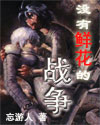战争与和平(下)-第3部分
按键盘上方向键 ← 或 → 可快速上下翻页,按键盘上的 Enter 键可回到本书目录页,按键盘上方向键 ↑ 可回到本页顶部!
————未阅读完?加入书签已便下次继续阅读!
sses to his destined goal; an immense number of chance circumstances occur of an opposite kind from the cold caught at Borodino to the spark that fired Moscow; and instead of genius there was shown a folly and baseness unexampled in history。
The invading army flees away; turns back and flees again; and all the chances now are consistently not for but against him。
Then there follows the opposing movement from east to west; with a remarkable similarity to the eastward movement from the west that had preceded it。 There were similar tentative movements westward as had in 1805; 1807 and 1809 preceded the great eastward movement。 There was the same cohesion together of all into one group of immense numbers; the same adherence of the peoples of Central Europe to the movement; the same hesitation midway; and the same increased velocity as the goal was approached。
Paris; the furthest goal; was reached。 Napoleon’s government and armies are shattered。 Napoleon himself is of no further consequence; all his actions are obviously paltry and mean; but again inexplicable chance comes in。 The allies detest Napoleon; in whom they see the cause of all their troubles。 Stripped of his power and his might; convicted of frauds and villainies; he should have been seen by them as he had been ten years before; and was a year later—a brigand outside the pale of the law。 But by some strange freak of chance no one sees it。 His part is not yet played out。 The man who ten years back; and one year later; was looked on as a miscreant outside the law; was sent by them to an island two days’ journey from France; given to him as his domain; with guards and millions of money; as though to pay him for some service he had done。
Chapter 4
THE COMMOTION among the peoples begins to subside。 The waves of the great tempest begin to abate; and eddies begin to be formed about the calmer surface where diplomatists are busy; fancying the calm is their work。
But all at once the quiet sea is convulsed again。 The diplomatists imagine that they; their disagreements; are the cause of this fresh disturbance; they look for wars between their sovereigns; the position seems insoluble。 But the storm they feel brewing does not come from the quarter where they look for it。 It rises again from the same starting point—Paris。 The last backwash of the westward movement follows—the backwash which was to solve the seemingly inextricable diplomatic difficulties; and to put an end to the military unrest of the period。
The man who has devastated France comes back to France alone; with no project; and no soldiers。 Any policeman can arrest him; but by a strange freak of chance no one does seize him; but all meet with enthusiasm the man they have been cursing but a day before; and will curse again within a month。
That man is needed for the last act winding up the drama。
The act is performed。
The last part is played。 The actor is bidden to undress; and wash off his powder and paint; he will be needed no more。
And for several years this man; in solitude on his island; plays his pitiful farce to himself; intrigues and lies; justifying his conduct when a justification is no longer needed; and shows all the world what the thing was men took for power when an unseen hand guided it。
The stage manager; when the drama was over; and the puppet stripped; showed him to us。
‘‘Look what you believed in! Here he is! Do you see now that it was not he but I that moved you?’’
But blinded by the force of the movement men for long could not perceive that。
Even more coherence and inevitability is to be seen in the life of Alexander I。; the personage who stood at the head of the counter…movement from east westward。
What was needed for the man who; to the exclusion of others; should stand at the head of that movement from the east westward?
There was needed a sense of justice; an interest in the affairs of Europe; but a remote one; not obscured by petty interests; a moral preeminence over his peers—the sovereigns of the time; there was needed a gentle and attractive personal character; there was needed too a personal grievance against Napoleon。 And all that is to be seen in Alexander I。; it was all prepared beforehand by the innumerable so…called chance circumstances of his previous life; by his education and the liberalism of the beginning of his reign; and the counsellors around; and Austerlitz; and Tilsit; and Erfurt。
During the war in defence of the country this personage is inactive; he is not needed。 But as soon as a general European war becomes inevitable; at the given moment; he is in his place; and bringing the European peoples together he leads them to the goal。
The goal is reached。 After the last war of 1815 Alexander finds himself at the highest possible pinnacle of human power。 How does he use it?
While Napoleon in his exile was drawing up childish and lying schemes of the blessings he would have showered on humanity if he had had the power; Alexander; the pacifier of Europe; the man who; from his youth up; had striven for nothing but the good of the people; the first champion of liberal reforms in his country; now when he seemed to possess the greatest possible power; and consequent possibility of doing good to his people; felt his work was done; and God’s hand was laid upon him; and recognising the nothingness of that semblance of power; turned from it; gave it up to despicable men; and men he despised; and could only say:
‘‘Not to us; not to us; but to Thy Name! I too am a man like all of you; let me live like a man; and think of my soul and of God。’’
Just as the sun and every atom of ether is a sphere complete in itself; and at the same time is only a part of a whole inconceivable to man through its vastness; so every individuality bears within it its own ends and yet bears them so as to serve general ends unfathomable by man。
A bee settling on a flower has stung a child。 And the child dreads bees; and says the object of the bee is to sting people。 A poet admires the bee; sipping honey from the cup of the flower; and says the object of the bee is to sip the nectar of the flower。 A beekeeper; noticing that the bee gathers pollen and brings it to the hive; says that the object of the bee is to gather honey。 Another beekeeper; who has studied the life of the swarm more closely; says the bee gathers honey to feed the young ones; and to rear a queen; that the object of the bee is the perpetuation of its race。 The botanist observes that the bee flying with the pollen fertilises the pistil; and in this he sees the object of the bee。 Another; watching the hybridisation of plants; sees that the bee contributes to that end also; and he may say that the bee’s object is that。 But the final aim of the bee is not exhausted by one or another; or a third aim; which the human intellect is capable of discovering。 The higher the human intellect rises in the discovery of such aims; the more obvious it becomes that the final aim is beyond its reach。
All that is within the reach of man is the observation of the analogy of the life of the bee with other manifestations of life。 And the same is true with the final aims of historical persons and of nations。
Chapter 5
NATASHA’S MARRIAGE to Bezuhov; which took place in 1813; was the last happy event in the family of the old Rostovs。 Count Ilya Andreivitch died the same year; and as is always the case; with the death of the father the family was broken up。
The events of the previous year: the burning of Moscow and the flight from that city; the death of Prince Andrey and Natasha’s despair; the death of Petya and the grief of the countess fell like one blow after another on the old count’s head。 He seemed not to understand; and to feel himself incapable of understanding; the significance of all these events; and figuratively speaking; bowed his old head to the storm; as though expecting and seeking fresh blows to make an end of him。 By turns he seemed scared and distraught; and then unnaturally lively and active。
Natasha’s marriage for a time occupied him on its external side。 He arranged dinners and suppers in honour of it; and obviously tried to be cheerful; but his cheerfulness was not infectious as in old days; but; on the contrary; aroused the commiseration of those who knew and liked him。
After Pierre and his wife had left; he collapsed and began to complain of depression。 A few days later he fell ill and took to his bed。 In spite of the doctor’s assurances; he knew from the first days of his illness that he would never get up again。 For a whole fortnight the countess sat in a low chair by his pillow; never taking off her clothes。 Every time she gave him his medicine; he mutely kissed her hand; weeping。 On the last day; sobbing; he begged forgiveness of his wife; and of his absent son; too; for squandering their property; the chief sin that lay on his conscience。 After receiving absolution and the last unction; he quietly died; and next day a crowd of acquaintances; come to pay the last debt of respect to the deceased; filled the Rostovs’ hired lodgings。 All those acquaintances; who had so often dined and danced in his house; and had so often laughed at his expense; were saying now with the same inward feeling of contrition and self…reproach; as though seeking to justify themselves: ‘‘Yes; whatever he may have been; he was a splendid man。 One doesn’t meet such men nowadays … And who has not his weaknesses?…’’
It was precisely when the count’s fortunes were so irretrievably embroiled that he could not conceive how; in another year; it would end; that he suddenly died。
Nikolay was with the Russian army in Paris when the news of his father’s death reached him。 He at once applied for his discharge; and without waiting for it; obtained leave and went to Moscow。 Within a month after the count’s death the financial position had been made perfectly clear; astounding every one by the immense sum of various petty debts; the existence of which no one had suspected。 The debts were more than double the assets of the estate。
The friends and relations advised Nikolay to refuse to accept his inheritance。 But Nikolay looked on such a refusal as a slur on the honoured memory of his father; and so he would not hear of such a course; and acc







